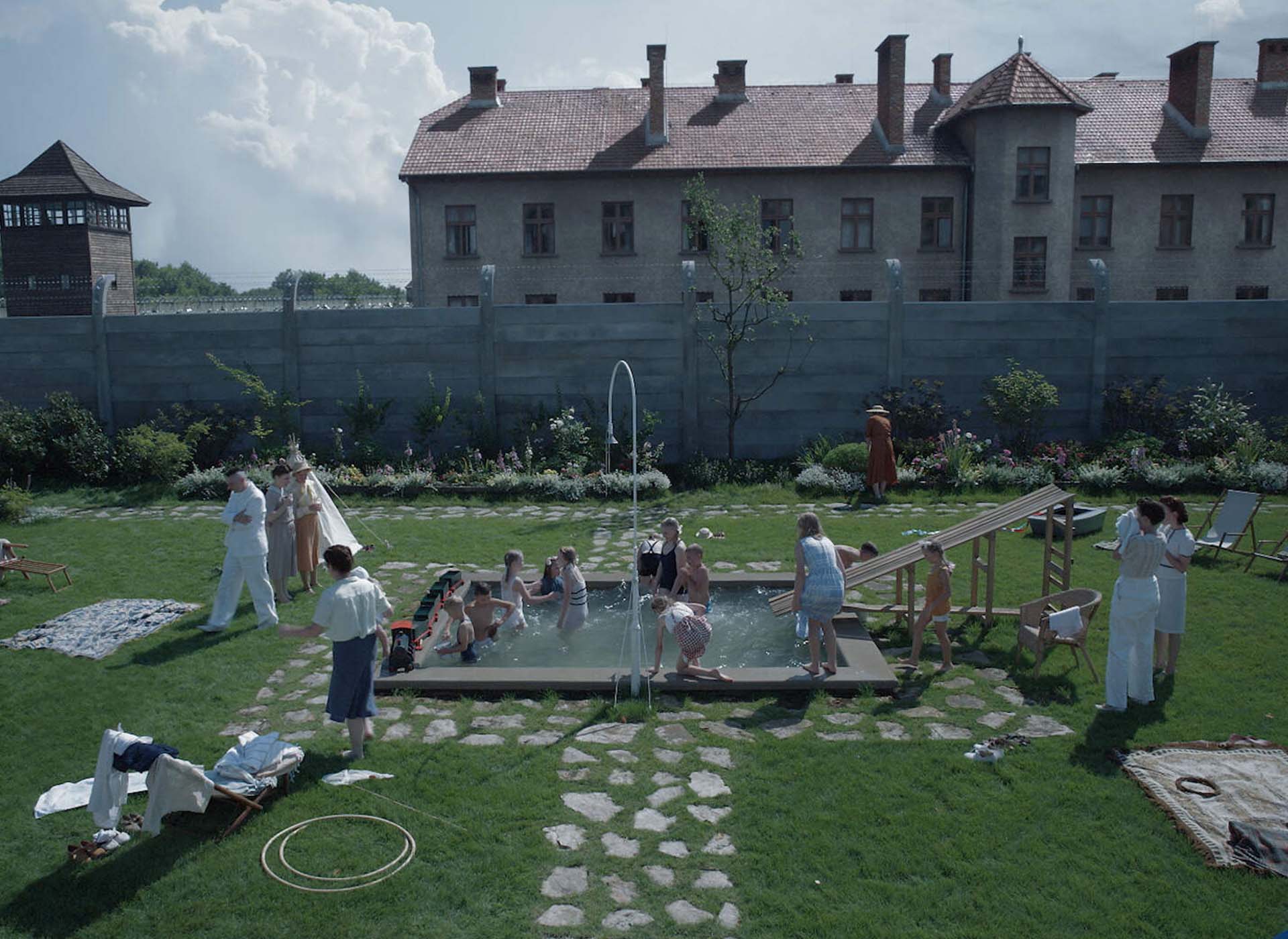
The Banality of The Banality of Evil
The Zone of Interest cuts deeper than its Nazi-alluding target audience would like to admit.
When The New Yorker sent philosopher Hannah Arendt to cover the trial of Adolf Eichmann, she summed up the experience of watching one of the Holocaust’s central organizers describe his complicity with a sense of the routine. The result was Arendt’s coining of the phrase “the banality of evil,” a concept that made her subsequent book Eichmann in Jerusalem: A Report on the Banality of Evil an enduring work of nonfiction.
As Arendt wrote, “For when I speak of the banality of evil, I do so only on the strictly factual level, pointing to a phenomenon which stared one in the face at the trial. Eichmann was not Iago and not Macbeth, and nothing would have been farther from his mind than to determine with Richard III 'to prove a villain.' Except for an extraordinary diligence in looking out for his personal advancement, he had no motives at all… He merely, to put the matter colloquially, never realized what he was doing… It was sheer thoughtlessness—something by no means identical with stupidity—that predisposed him to become one of the greatest criminals of that period.”
Though Arendt intended her comments to describe one of contemporary history’s most nefarious mass murderers, the concept should shake us to our core. Eichmann perfected such banality in what was, for at least a time, the most stellar and efficient bureaucracy in world history. It was meant as an indictment of all of us strivers as we chased status and power unchecked. It was not the stuff of the dictatorial class, but a phrase that should continue to govern our ethics while we negotiate buying Chinese goods made by a gaggle of sweatshop children and shrug off daily injustices in our seemingly benign workplaces as merely trusting the process.
As Oscar season winds to a close, “the banality of evil” has made a comeback of sorts thanks to British filmmaker Jonathan Glazer’s The Zone of Interest. It’s no surprise that yet another Holocaust drama would find itself with a bevy of nominations, including nods for Best Picture, Director, Screenplay, and International Film. But Glazer’s work is unlike any other Holocaust movie barring a fervent belief in the power of suggestion it shares with Alan Resnais’s groundbreaking 1956 documentary Night and Fog. At its core, it’s a detached domestic drama that follows the upper-middle class Hösses who seem to be a picture-perfect classic TV nuclear family–just one that happens to live next door to Auschwitz where dad (Christian Friedel) is a man on the rise.
Like Seinfeld, the show about nothing that turned Jewish humor into a WASPY symbol of social status, The Zone of Interest finds profundity in the quotidian–even more so than the 2014 Martin Amis novel on which it’s loosely based. During a time of international upheaval, its characters' greatest concern is that arbitrary decisions from Nazi central planning may force them to leave the Edenic paradise where they fertilize the sunflowers with the ashes from next door.
Glazer spends the majority of the film as a fly on the wall observing housewife Hedwig (Anatomy of a Fall’s Sandra Hüller) caring for the kids and planning the weekend barbecues as the family engages in the stuff of Nazi Germany’s home videos. Similar to Todd Haynes’s May December, Glazer’s film displays a singular obsession with deconstructing its genre, opting for a sensibility that saps the Holocaust’s movie’s grand gestures and oft-fetishized violence. But such detachment is not meant to create a barrier between artist and subject to illustrate the unknowable ala Scorsese’s willful white man’s caveat that diluted the impact of Killers of the Flower Moon. One would find the whole affair quite boring if the family dynamics didn’t boast the same level of drama as the Facebook page for the local HOA.
The problem with The Zone of Interest lies not in the film, but in the schizophrenic role that the other “N” word plays in contemporary discourse. As he did in 2014’s Under the Skin, Glazer posits that the sheer ordinariness of ideology is vital to the desensitization required for atrocity to take root. Yet, the film’s most ardent admirers use the banality of evil as a platitude to absolve themselves from complicity. Such is why Arendt’s term has usurped “needle drop” as the most overused phrase in film criticism as of late. And it’s understandable as we enter Trump’s “Return of the Jedi” phrase, a time when the former president’s every utterance must fall under the fascist umbrella and a dozen Neo-Nazi losers marching in downtown Nashville serves as the fulcrum to keep our most noxious local political hucksters in the national media spotlight.
If she were still with us, Arendt would say that those who follow the Donald around the country as if he were the Dead don’t quite qualify as banal. That’s reserved for the bureaucrats whose livelihoods may be on the line come November–the members of the same structures Glazer painstakingly probes whether they choose to ignore it or not.
The Zone of Interest is now playing in theaters and available on premium VOD.
